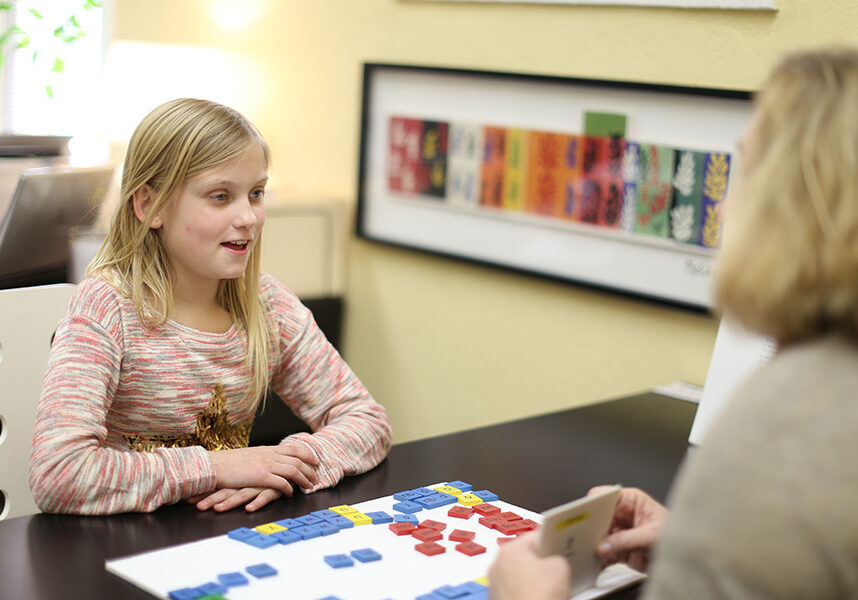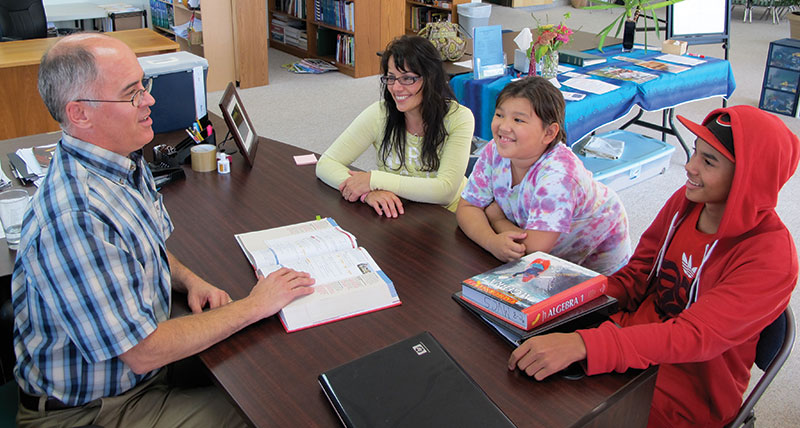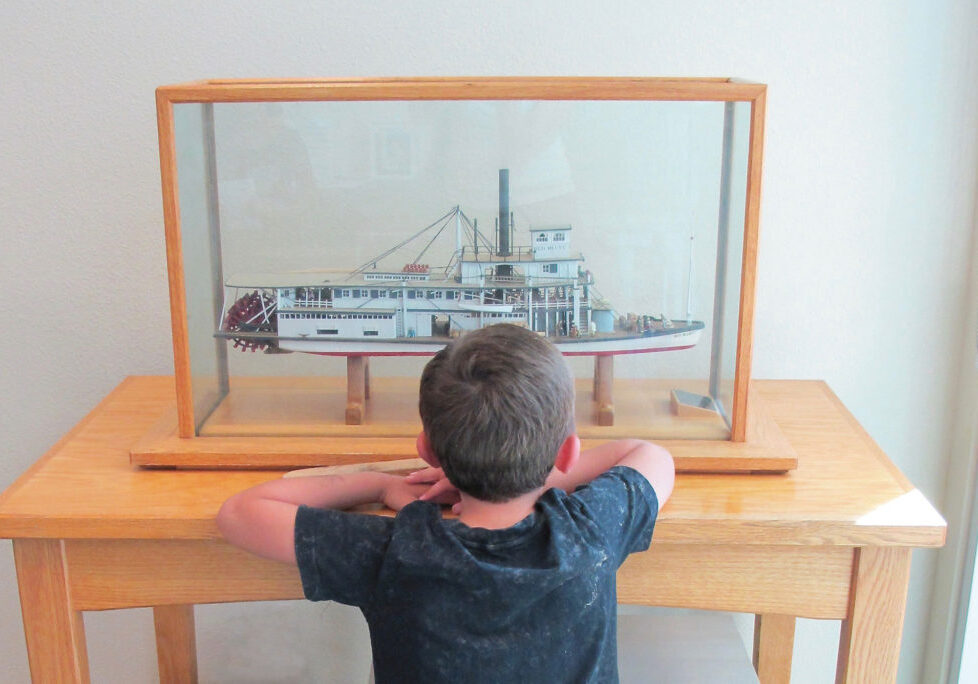October means parent conference time in many school districts. Are you prepared? While you expect that your child’s teacher will be organized and ready for the meeting, preparation on your end, too, will help provide a first-class learning experience for your child.
The teacher knows one segment of your child’s life: how he learns and behaves at school. You, though, are the expert on your child. You have studied every aspect of his life from birth, and can supply information that makes his teacher’s job more effective. “Teachers like parents to reveal a picture of their child that is beyond academics,” says Karen Reddin, a recently retired elementary school teacher from Gateway Unified School District in Shasta County. “This allows the teacher to understand the whole child,” she continued. This level of partnership between you and the school optimizes the opportunity for your child to achieve success during the school year.
Most parent/teacher conferences are scheduled for 20 to 30 minutes. That’s not a lot of time to cover what both parent and teacher want to share. The following tips will assist you in having a productive and satisfying experience that will maximize the benefits of family/school collaboration:
Pre-planning
- Listen carefully to what your child says about school. What does he like and dislike? Does he talk about tasks that are too easy or too hard? Does he talk about his social relationships and his relationship with his teacher? Does he come home from school happy? Is he ready to return the next day? This kind of information is vital to the education process. Keep notes – they will allow you to share specifics instead of generalities. Teachers who know how a child experiences his school day can build on what the child finds interesting, and can communicate with him more effectively about his challenges.
- Keep a folder representative of the child’s work – both his best and worst. A monthly sample from each subject matter is sufficient. If you have questions about particular assignments and how they were graded or why they were assigned, jot them down on the paper. This will remind you of what the concern was at the time.
- Develop a prioritized list of questions you have about your child’s behavior. Does he pay attention in class? Complete his work on time? Participate in classroom activities? Use appropriate social skills in the classroom and on the playground? Include any questions about the curriculum, grading policies, classroom management, and classroom assignments. While there may not be time to address all your concerns, the more important ones can be voiced.
- Turn in all required office and teacher paperwork by deadlines. Redding School of the Arts middle school teacher Geoff Jones says, “When parents turn in all required paperwork and check student online records before the conference, teachers can focus on the child. Otherwise, time is spent on business, and parents leave without valuable student information.”
- Talk to your child before the conference. Tell him that it is an opportunity for you and his teacher to become acquainted. Ask him if he has questions he would like you to ask. Assure him that you will discuss the conference with him afterward.
The Conference
Sometimes parents feel apprehensive about the parent conference. Perhaps it is their first contact with the teacher. Possibly they themselves had unhappy school experiences and approach school interactions with hesitation. Acknowledge those feelings then move ahead positively. Rest assured that the teacher wants the conference to be as successful as you do.
- Show up. If you can’t make your planned appointment, call to reschedule. The teacher is counting on your attendance.
- Arrive on time. Your scheduled 20 to 30 minutes will fly by. When you allow yourself leeway to arrive on schedule, you will feel more relaxed and open to discussion.
- Greet warmly. You and the teacher both want to feel comfortable. A warm smile and friendly greeting start the meeting on a positive note.
- Bring a notebook. Teachers appreciate that you care enough to remember what was discussed. When you have notes to refer to later, you can more easily recall what to follow up on at home.
- Listen. Although you have questions, let the teacher lead the conference. The school is her domain. She wants you to know about her program and her perceptions of your child. If you sense that time is running short, ask to have your questions addressed.
- Hearing bad news. A teacher doesn’t like to report problems and concerns anymore than you like to hear about them. If you receive disturbing news, listen as non-defensively as you can. It is natural to feel upset, protective, and perhaps angry. Tactfully work together to develop a plan for success. Keep in mind that you both have the same goal – a positive educational experience for your child.
- Focus on the child. Sometimes parents want to share their personal problems with the teacher. This is not the time to get help with your issues. It is time to learn how your child is doing at school. The conference is about your child, not you.
- Ask questions. Refer to the list you developed before the conference. Ask about anything the teacher has said that you don’t understand or that you have concerns about.
- Make requests. If you want regular home/school communication, ask. Teachers like to communicate with receptive parents. Do you prefer contact through notes, telephone calls, e-mail or text? If you like telephone calls, let the teacher know your availability during after-school hours.
- Reschedule a follow-up conference. If all that you wanted to cover hasn’t been addressed, schedule another time to meet.
Mary Ann Barnes, veteran teacher from Mt. Shasta Elementary School, summed up parent conferences with this sage advice: “Be prepared to share this special time with your child’s teacher in an effort to build a team of support to make your child’s school year positive, successful and exciting.” When this collaboration occurs, magic happens.
Posted in: Education
Comment Policy: All viewpoints are welcome, but comments should remain relevant. Personal attacks, profanity, and aggressive behavior are not allowed. No spam, advertising, or promoting of products/services. Please, only use your real name and limit the amount of links submitted in your comment.
You Might Also Like...

Creating A Positive Learning Environment for All Students
Exemplary Educators Have All Students Learning As a young educator, I absolutely loved my job. My first step into the world of education was as a special education teacher. In […]

Is Your Child Ready For School? Are You?
Anticipation builds as the new school year approaches. Every year my kids become antsy as the stores fill up with new backpacks, fun and colorful accessories, and the latest in […]

Working Memory And The Learning Brain: What It Is and Why It Matters
Working with a child as he learns a new skill can be a rewarding experience for a parent or teacher. It can also be one filled with unexpected challenges, requiring […]

Schools are Starting to Teach Social Emotional Learning – it Helps at Home, Too
More Goldfish!” my 5-year-old demands. I summon all my patience. “Can you try that again?” “I’m hungry!” I take a long blink. “Honey? Can you—” Her face is still beet […]



